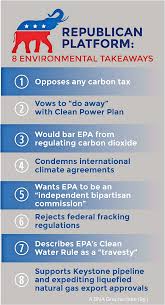The Alphabet of Climate Change from A to Z ~ Now R for Republicans
From the Article by Elizabeth Kolbert, New Yorker Magazine, November 28, 2022
Reaching net zero in the U.S. will require putting such wrangling aside. It will require building out the transmission system while, at the same time, expanding its capacity so that hundreds of millions of cars, trucks, and buses can be run on electricity. It will require installing tens of millions of public charging stations on city streets and even more charging stations in private garages. Assembling the electric cars and trucks will, in turn, necessitate extracting nickel and lithium for their batteries, which will mean siting new mines, either in the U.S. or abroad. The new cars and trucks will themselves have to be manufactured in an emissions-free manner, which will involve inventing new methods for producing steel or building a new infrastructure for capturing and sequestering carbon.
The list goes on and on. The fossil-fuel industry will essentially have to be dismantled, and millions of leaky and abandoned wells sealed. Concrete production will have to be reëngineered. The same goes for the plastics and chemicals industries. Currently, ammonia, a critical and water heaters that now run on oil or gas, commercial and residential, will have to be replaced. So will all the gas stoves and dryers and industrial kilns.
The airline industry will have to be revamped, as will the shipping industry. Farming is responsible for roughly ten per cent of America’s greenhouse-gas emissions, mostly in the form of nitrous oxide and methane. (Nitrous oxide is a by-product of fertilizer use; methane is released by rotting manure and burping cows.) Somehow, these emissions, too, will have to be eliminated. All of this should be done — indeed, must be done.
Officially, the U.S. is committed to reaching net zero by 2050. But a task of this scale has never been attempted before. Zeroing out emissions means rebuilding the U.S. economy from the bottom up. Perhaps Americans recognize this, perhaps not.
In early July, at a time when much of the country was baking in ninety-five-degree-plus heat, the Times took a poll of registered voters. Asked to name the most important problem facing the nation, twenty per cent of the respondents said the economy, fifteen per cent said inflation, and eleven per cent said partisan divisions. Only one per cent said climate change. Among registered Republicans, the figure was zero per cent.
#######+++++++#######+++++++#######
See Also: Despite Net-Zero Vows, Wall Street ‘Climate Arsonists’ Still Pumping Billions Into Fossil Fuels, Jake Johnson, Common Dreams, January 18, 2023
It is business as usual for most banks and investors who continue to support fossil fuel developers without any restrictions, despite their high-profile commitments to carbon neutrality. Top banks in the United States and around the world have made a show of embracing net-zero emissions pledges, portraying themselves as allies in the fight against the global climate emergency.
But a new analysis entitled “Throwing Fuel on the Fire” by a group of NGOs makes clear that the world’s leading financial institutions — including major Wall Street banks such as Citigroup, JPMorgan Chase, and Bank of America — are still pumping money into fossil fuel expansion, bolstering the industry that is primarily responsible for worsening climate chaos.
According to the report, 56 of the largest banks in the Net-Zero Banking Alliance (NZBA) — a coalition convened by the United Nations — have provided nearly $270 billion in the form of loans and underwriting to more than 100 “major fossil fuel expanders,” from Saudi Aramco to ExxonMobil to Shell.
Additionally, 58 of the biggest members of the Net-Zero Asset Managers (NZAM) initiative — including the investment behemoths BlackRock and Vanguard — held at least $847 billion worth of stocks and bonds in more than 200 large fossil fuel developers as of September.
Both the NZBA and the NZAM are under the umbrella of the Glasgow Financial Alliance for Net-Zero (GFANZ), a campaign launched in 2021 with the goal of expanding “the number of net zero-committed financial institutions.” Climate advocates have long argued that net-zero pledges are fundamentally inadequate to the task of stopping runaway warming.
“The science is very clear: we need to stop developing new coal, oil, and gas projects as soon as possible if we want to meet our climate goals and avoid a worst-case scenario,” said Lucie Pinson, the executive director and founder of the watchdog group Reclaim Finance. “Yet, it is business as usual for most banks and investors who continue to support fossil fuel developers without any restrictions, despite their high-profile commitments to carbon neutrality.”
